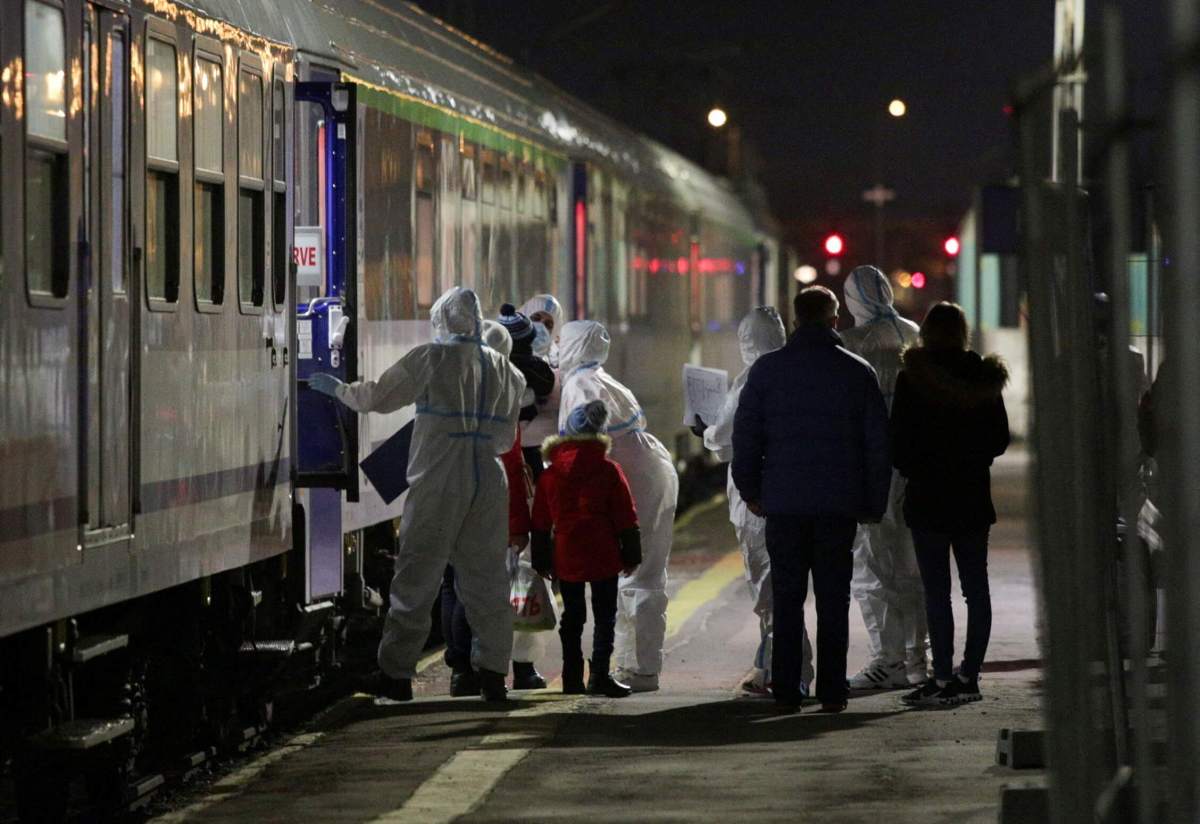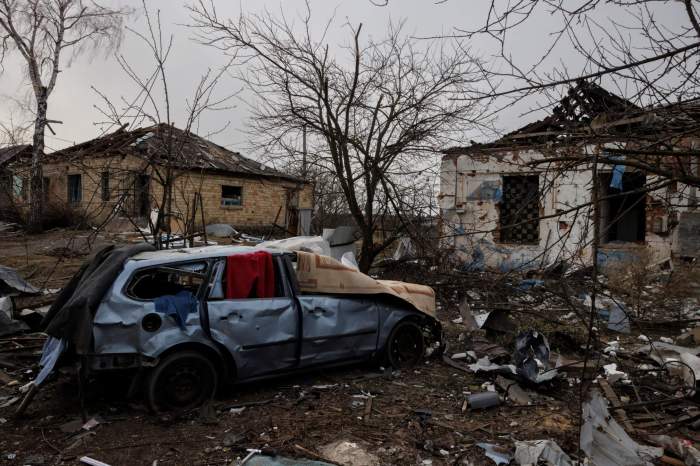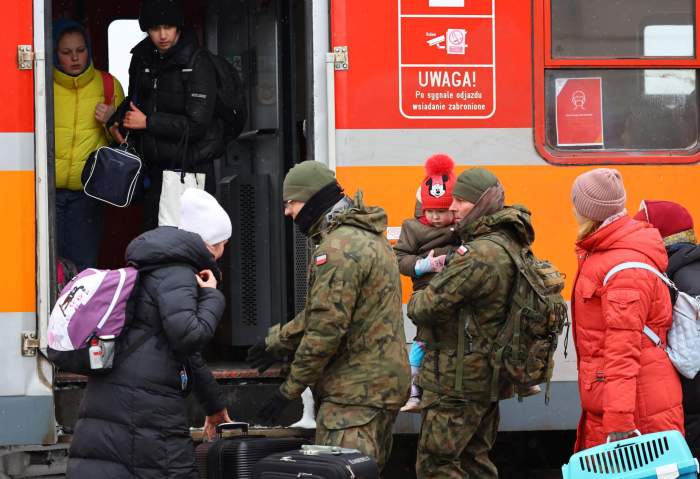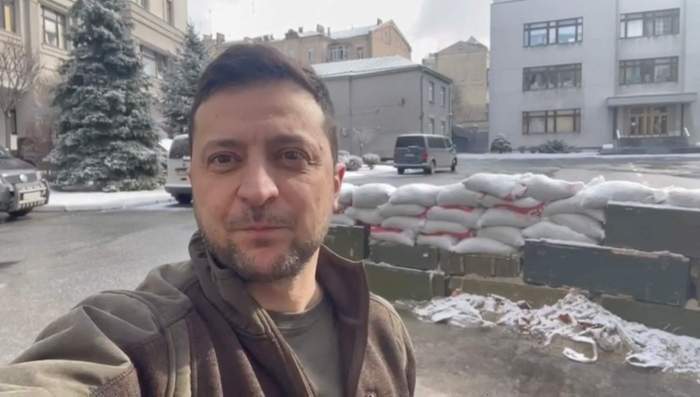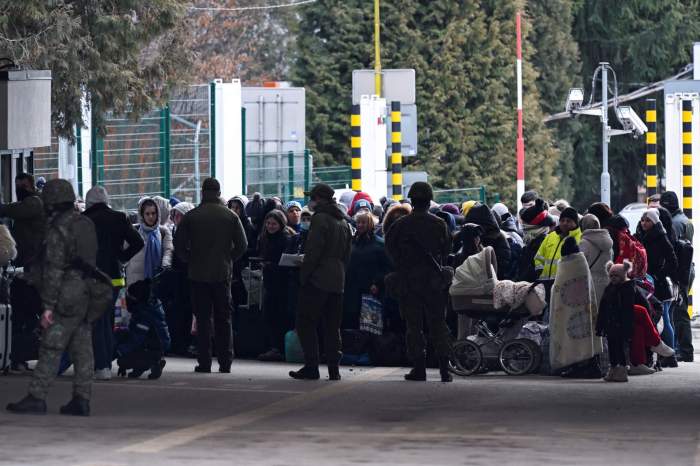Thousands more refugees crossed into Eastern Europe on Thursday, many hoping that peace talks between Moscow and Kyiv may end the war soon, though more people were expected to flee in the days ahead.
As the conflict in Ukraine entered its fourth week, about 3.2 million have fled abroad, United Nations data showed on Thursday, in what has become Europe’s fastest growing refugee crisis since World War Two.
While the numbers arriving in the frontline states – Poland, Slovakia, Hungary, Romania and Moldova – have slowed in recent days, Hungarian Prime Minister Viktor Orban said he expected a “bigger wave” next week.
“The war is not subsiding, but spreading; and as it spreads, there is the risk that next week will see the arrival of more people in Hungary, presenting us with a huge challenge,” he said in a video posted on his Facebook page late on Wednesday.
“They are not only fleeing from areas threatened by war, but also from war zones themselves.”
One of them was Alla Klochko from Mirnohrod in Donetsk, the region in eastern Ukraine that separatists have declared an independent republic but is contested by Kyiv and is at the center of fierce fighting between Ukraine and Russia.
The 31-year-old was hoping she could stay near Warsaw, find work and enrol her eight-year-old daughter Alisa, who loves playing the piano, in a Polish school.
“I hope that, if our delegation reaches an agreement and at the end there will be peace, I hope that Ukraine will not lose our part of the territory, our Donetsk, because Donetsk region is Ukrainian,” she said.
“We are a part of Ukraine, have always been and hope that this will stay like that,” she said from Przemysl train station, a transit hub near the Ukrainian border. “We speak Russian, but we are Ukrainians.”
GO WEST
The European Union is offering collective protection to Ukrainians and many already have been moving further west. Collective protection of refugees is a measure that removes the need for individual asylum applications.
In Germany, close to 190,000 people have registered with authorities so far. In Spain that number is 4,500, and in Norway, which is not in the EU but is also granting collective protection, 2,000.
“Volunteers say they don’t know if we have a train to Berlin today,” said Nastia Chemerys from Kyiv, speaking at Warsaw station where technical problems were causing delays on the Polish train network.
“Five, six days ago I left Kyiv … It’s very dangerous. When I left Kyiv, after two days, near my home, one house was fired (at).”
Amid the unrelenting fighting, both Ukraine and Russia have spoken of progress in their bilateral talks.
Ukrainian officials have said they think Russia is running out of troops to keep fighting and could soon come to terms with its failure to topple the Ukrainian government. Moscow has said it is close to agreeing a formula that would keep Ukraine neutral, long one of its demands.
“I hope that this will end soon. Everybody says that it has to … I don’t know,” said Ekaterina Herman, 27, who arrived in Poland late on Wednesday with her two-year-old.
“I am planning to come back to Ukraine.”
Meanwhile, refugees across the region were trying to establish some kind of normality.
At a supermarket-turned-shelter in Rzeszow, south-eastern Poland, volunteers and children played tug-of-war, drew tattoos and made drawings, with the Beverly Hills Cop movie soundtrack blasting on the speakers.
In Romania, at the Siret border crossing with Ukraine, women with babies, toddlers and older children continued to arrive, while Romanian firefighters and volunteers welcomed them and carried their luggage to buses transporting them onwards.
The United Nations is basing its relief plans on four million refugees but has said the figure would likely rise. The European Union is expecting five million to arrive.
Since the start of the invasion on Feb. 24, 282,000 people have fled to Hungary, 270,000 to the Czech Republic and 491,000 to Romania, with the most refugees — 1.97 million — in Poland, according to government and UN data.



